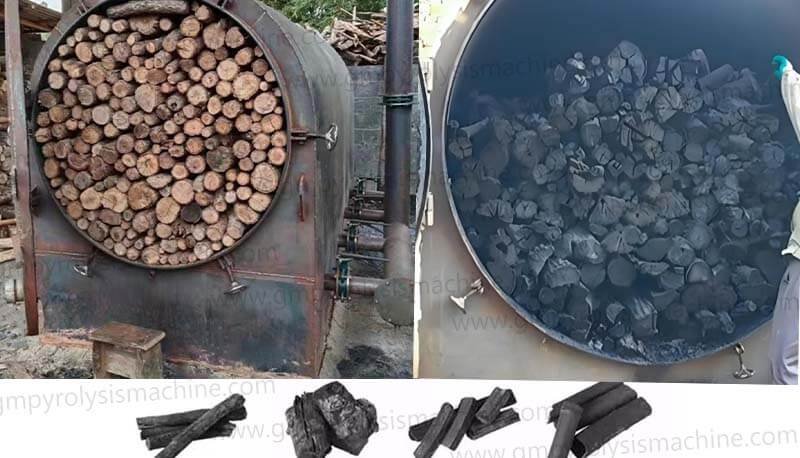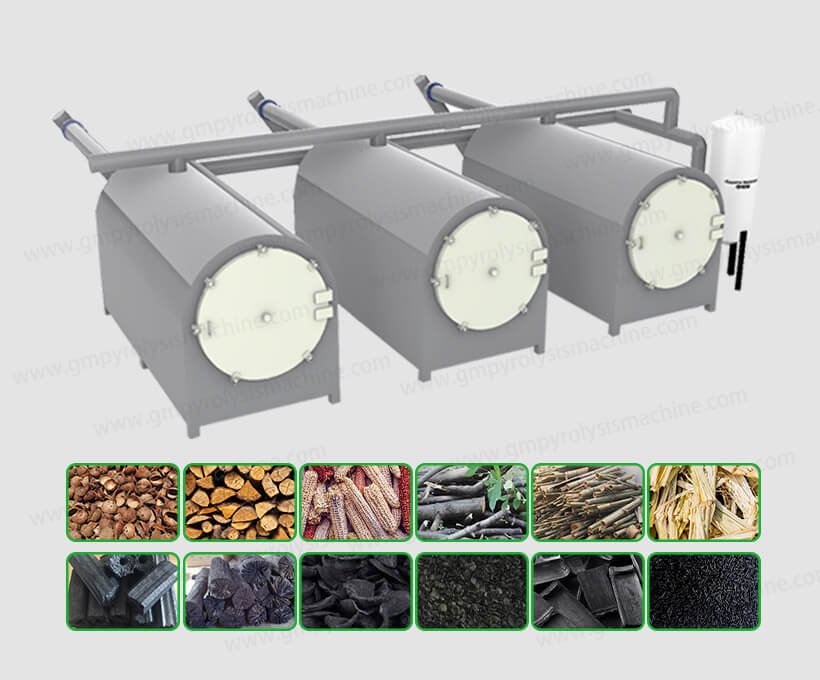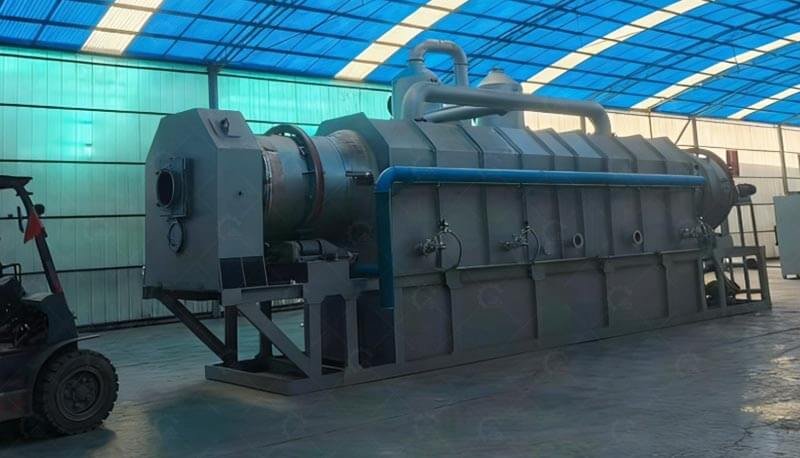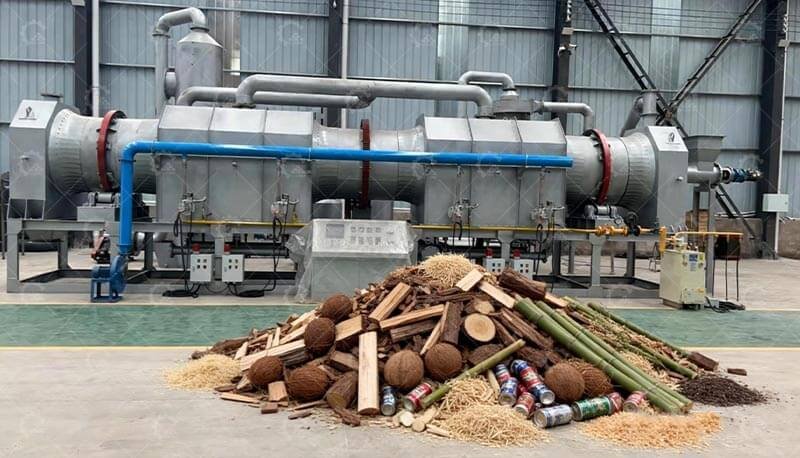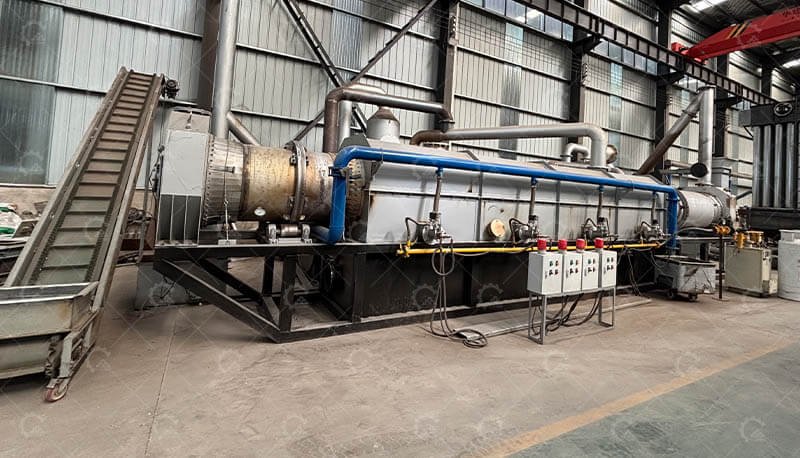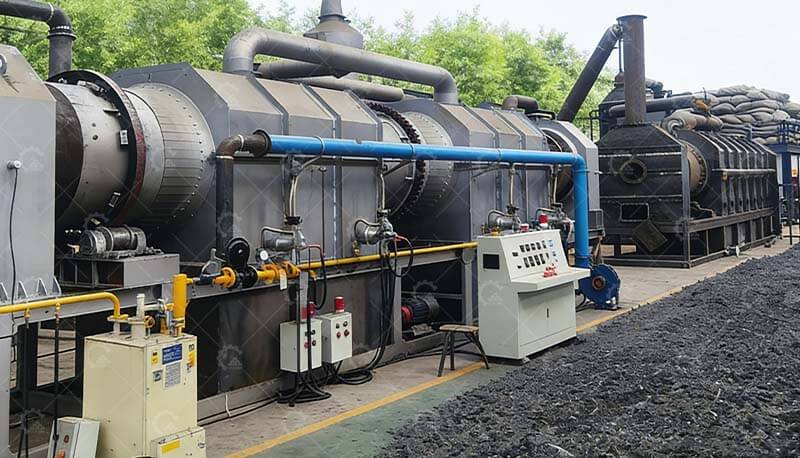Biomass charcoal making machines are becoming increasingly popular for businesses that want to tap into the potential of renewable energy. By converting organic waste materials such as wood chips, agricultural residues, and even sawdust into charcoal, these machines offer both environmental and economic benefits. However, the price of these machines varies significantly, depending on several factors.
What is a Biomass Charcoal Making Machine?
A biomass charcoal making machine, also known as a biomass pyrolysis machine, is designed to convert organic materials into charcoal through a process called pyrolysis. This machine is used for turning biomass waste into valuable products, including charcoal, bio-oil, and syngas, which can be used for energy generation or further processing.
The Importance of Biomass Charcoal
Biomass charcoal has many uses, from acting as a clean-burning fuel for cooking and heating to serving as a soil amendment (biochar) that enhances agricultural productivity.
Why Price Matters When Choosing a Biomass Charcoal Making Machine
The price of a biomass charcoal making machine can be a significant factor in deciding which one to purchase. A lower price might be tempting, but you need to ensure that the machine meets your production needs and offers long-term value. A high-quality machine might cost more initially, but it could save you money in maintenance and operational costs over time.
Factors Influencing Biomass Charcoal Making Machine Price
Several factors contribute to the price variation of biomass charcoal making machines. Understanding these factors will help you make an informed purchase decision.
Machine Capacity and Output
One of the most significant factors affecting the price of a biomass charcoal making machine is its capacity. Machines with larger production capabilities generally cost more due to the larger components, heavier-duty construction, and increased energy requirements. Smaller machines designed for smaller operations or pilot testing may be more affordable but offer lower output.
Material Type and Quality
The materials used in manufacturing the machine, including the quality of steel, components, and the durability of the parts, will impact the price. Machines made from high-grade, durable materials will cost more, but they are likely to offer longer lifespans and better efficiency.
Brand and Manufacturer Reputation
Reputable manufacturers often charge more for their products because they offer proven reliability, better customer support, and higher-quality components. While lesser-known brands may offer lower prices, they may not provide the same level of reliability or customer service, leading to higher operational costs in the long term.
Technological Features and Automation
Modern biomass charcoal making machines come with advanced features such as automated control systems, real-time monitoring, and remote diagnostics. These features increase the machine’s efficiency, ease of use, and overall value but can also increase its price.
Location and Shipping Costs
The location of the manufacturer or supplier plays a role in determining the final price. Local suppliers may charge less for shipping, but international suppliers may offer better prices on high-quality machines. Shipping costs, import duties, and taxes can all add to the overall price of the machine.
How to Choose the Right Biomass Charcoal Making Machine
When selecting a biomass charcoal making machine, it’s important to consider your specific production needs and operational requirements.
Understanding Your Production Needs
Do you need a machine for a small-scale operation or a large industrial facility? Assess your production goals and choose a machine that matches the scale of your business. Larger machines offer higher output, but if your needs are modest, a smaller machine might be more cost-effective.
Calculating Long-Term Costs
While the upfront price is important, you should also consider the long-term costs of operating the machine, including maintenance, energy consumption, and repairs. A machine with higher energy efficiency may cost more initially but save you money over time.
Checking for Customer Support and After-Sales Services
A reliable manufacturer will provide customer support and after-sales services such as training, spare parts, and maintenance. Be sure to choose a supplier who offers good after-sales services, especially if you’re investing in a higher-end machine.
Biomass Charcoal Making Machine: Price vs. Quality
Why Cheap May Not Always Be the Best Option
While low-priced machines may seem like an attractive option, they often lack the durability, efficiency, and features that you’ll need for long-term success. These machines may require more frequent repairs, have higher energy consumption, and produce lower-quality charcoal.
Investing in Quality for Long-Term Gains
Opting for a higher-quality biomass charcoal making machine may involve a larger initial investment, but it can pay off in the long run. A high-quality machine will have a longer lifespan, lower operational costs, and provide better overall performance.
Choosing the right biomass charcoal making machine requires careful consideration of several factors, including machine capacity, material quality, technological features, and the reputation of the manufacturer. By understanding the key factors that influence price, you can make a well-informed decision that will serve your production needs and ensure long-term profitability.

